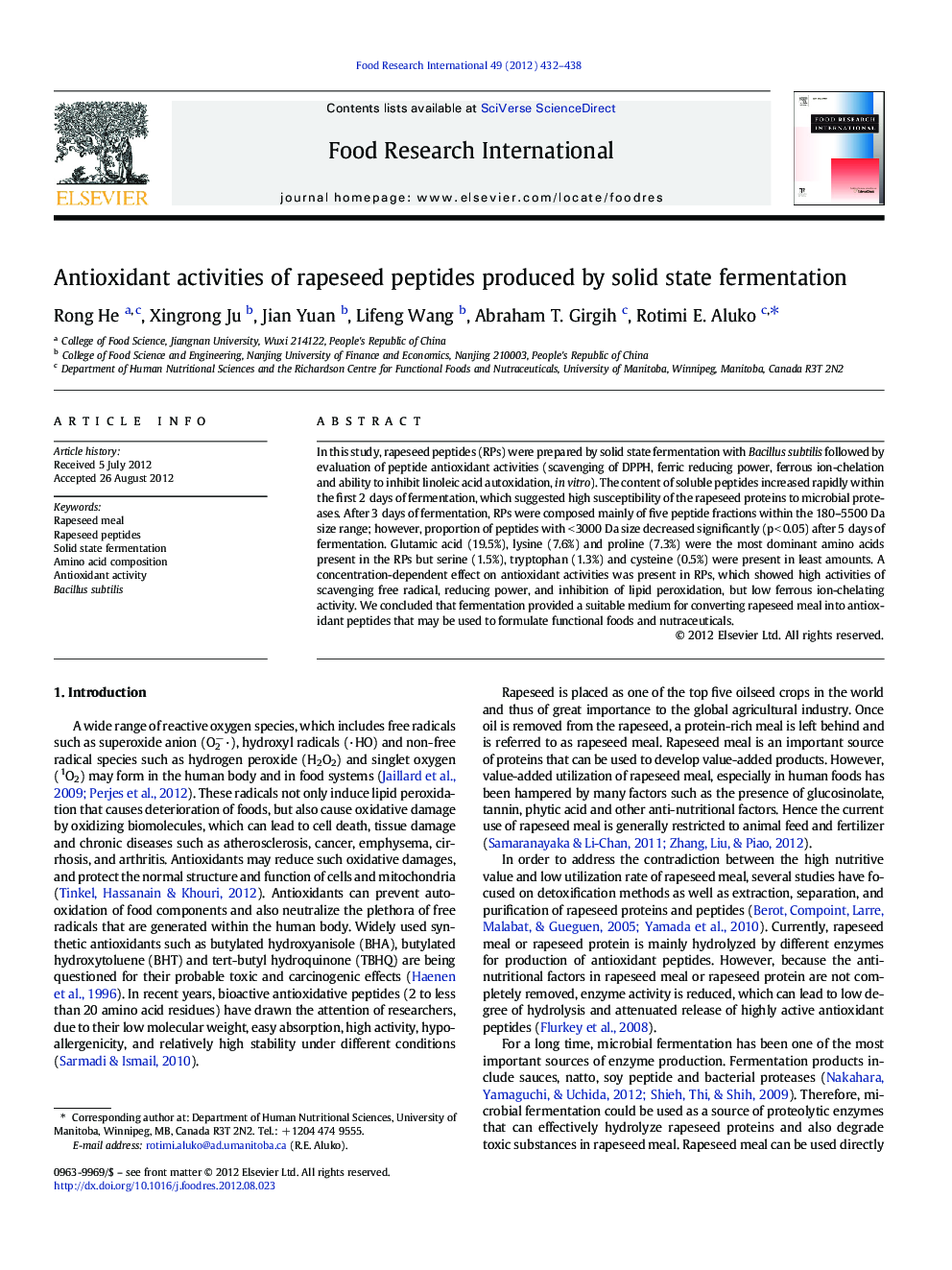| Article ID | Journal | Published Year | Pages | File Type |
|---|---|---|---|---|
| 6399138 | Food Research International | 2012 | 7 Pages |
In this study, rapeseed peptides (RPs) were prepared by solid state fermentation with Bacillus subtilis followed by evaluation of peptide antioxidant activities (scavenging of DPPH, ferric reducing power, ferrous ion-chelation and ability to inhibit linoleic acid autoxidation, in vitro). The content of soluble peptides increased rapidly within the first 2 days of fermentation, which suggested high susceptibility of the rapeseed proteins to microbial proteases. After 3 days of fermentation, RPs were composed mainly of five peptide fractions within the 180-5500 Da size range; however, proportion of peptides with < 3000 Da size decreased significantly (p < 0.05) after 5 days of fermentation. Glutamic acid (19.5%), lysine (7.6%) and proline (7.3%) were the most dominant amino acids present in the RPs but serine (1.5%), tryptophan (1.3%) and cysteine (0.5%) were present in least amounts. A concentration-dependent effect on antioxidant activities was present in RPs, which showed high activities of scavenging free radical, reducing power, and inhibition of lipid peroxidation, but low ferrous ion-chelating activity. We concluded that fermentation provided a suitable medium for converting rapeseed meal into antioxidant peptides that may be used to formulate functional foods and nutraceuticals.
⺠Rapeseed meal was converted to peptides by solid state microbial fermentation. ⺠Peptides were high in glutamic acid, a known potentiator of antioxidant activity. ⺠Peptides effectively scavenged free radicals and inhibited linoleic acid oxidation.
